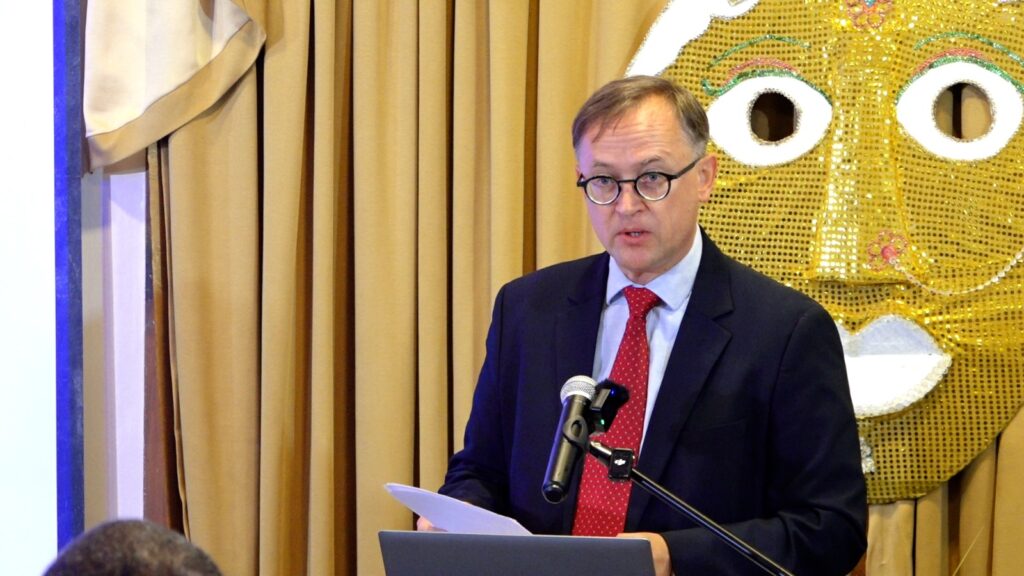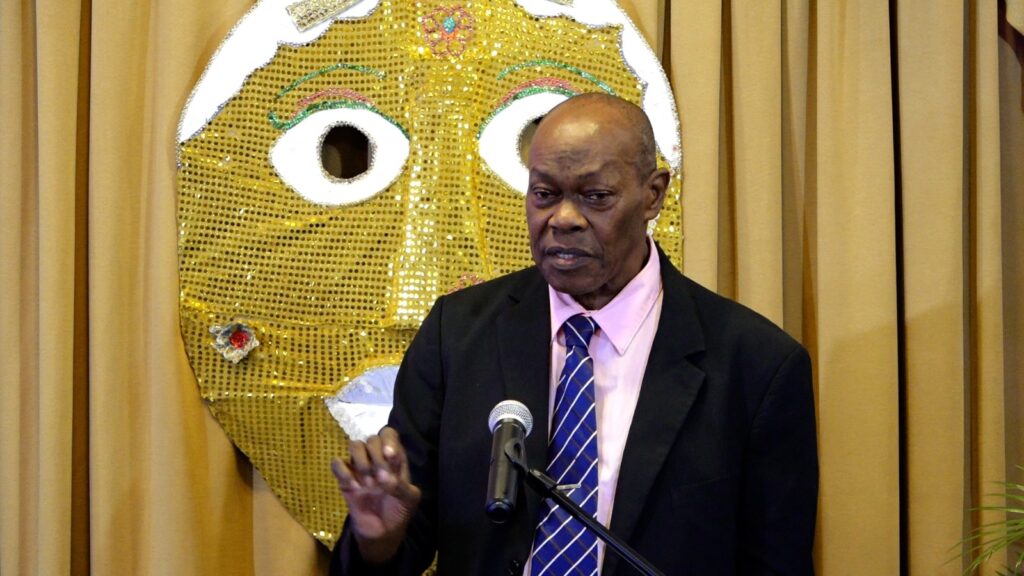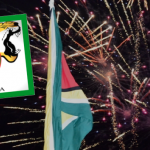
The United Nations Educational, Scientific and Cultural Organization (UNESCO) is working with Guyana with the hope of having Guyana ratify the UNESCO 2003 Convention for the Safeguarding of the Intangible Cultural Heritage.
Guyana’s ratification of the Living Heritage Convention would mark an important step forward in the safeguarding of the country’s cultural heritage, and that of the region.
A three-day workshop on the UNESCO 2003 Convention for the Safeguarding of the Intangible Cultural Heritage opened today at the Herdmanston Lodge with Yuri Peshkov – the Culture Programme Specialist at UNESCO Cluster Office for the Caribbean – speaking on the importance of preserving the country’s intangible cultural heritage.
Peshkov said the loss of cultural equality often results in the loss of identity and ultimately affects the way in which people relate to the world.
Culture, he said, is therefore critical, and should be preserved, adding that it provides a sense of identity and belonging.
According to Peshkov, Guyana’s ratification of the Convention for the Safeguarding of the Intangible Cultural Heritage could serve as a driving force for the preservation of the country’s cultural heritage.

“We think that the potential ratification of the Living Heritage Convention by Guyana would be a critical step forward, acknowledging the importance of safeguarding its precious heritage on the national level, and thereby contributing to advancing national sustainable development,” UNESCO Culture Programme Specialist said.
UNESCO’s Living Heritage Convention proposes five broad domains in which intangible cultural heritage is manifested: oral traditions and expressions, performing arts, social practices including rituals and festive events, knowledge and practices concerning nature and the universe, and traditional craftsmanship.
Making a case for Guyana, Art and Culture Expert, Al Creighton, said the workshop is taking place at a time when some of Guyana’s intangible cultural heritage are fading away, and in some cases have become extinct.
Citing a number of examples, Creighton said while “wake” and “dig dutty” are still practiced in Guyana, only fragments of the ring games and masquerade bands are visible.
“When you come to Guyana and you look at the performance of masquerade in Guyana, there are no longer bands performing on the road. You see fragments, fragments and remnants but you no longer have bands performing on the road,” he said.
He said Guyana, like other countries around the world, is facing major threats linked to progressive developments including but not limited to technology and the increasing use of social media.
“We are facing major threats, some of the more progressive developments in modern society, technology, the technological age, the new alternative sources, the new alternative modes of entertainment, and particularly, the very powerful social media. And these things have had a devastating effect upon the survival of intangible cultural heritage in Guyana, in particular, and clearly in other parts of the Caribbean and the world,” he said.

Creighton said it is therefore important to grab the attention of young people to halt the march of the disappearance of many items of cultural heritage.
UNESCO’s Global Facilitator, David Brown said in 2016 UNESCO conducted a needs assessment on safeguarding the country’s intangible cultural heritage. He said it was found that while there were a number of government ministries and departments, as well as organizations and groups including the National Trust of Guyana, established to preserve the country’s cultural heritage, they were largely disconnected.
“Despite the vibrancy of the Guyanese culture, however, it was also observed at the time, a lack of cohesion and channels of communications among state agencies, community groups, non-government organisations, and the media in the process of safeguarding the country’s intangible cultural heritage elements. So, you did find that there were groups that were preserving ICH but they were not communicating, they were not speaking to each other, but that’s not unique to Guyana, that’s not a criticism, it happens in Jamaica, it happens in Trinidad, it happens in Barbados, St Lucia, everywhere,” Brown said.
He said it is UNESCO’s intention to show how the institutions and organizations can work as a collective to safeguard the country’s intangible cultural heritage.
He said the benefits of the ratifying the 2003 Convention are numerous with opportunities for organizations to access funding through UNESCO.
At the end of the workshop, a declaration on the way forward is expected, along with the formation of a National Intangible Cultural Heritage Committee. Guyana National Commission for UNESCO and Merundoi Incorporated are among the organizations involved in the workshop.











You must be logged in to post a comment Login